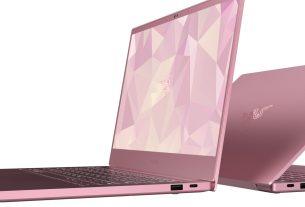
Canonical’s Ubuntu operating system remains the most popular version of desktop Linux. But once the company stopped developing its own Unity interface, its focus moved elsewhere. Canonical’s eyes are now set more on the cloud than the device you’re reading this on.
If Canonical no longer seems to care all that much about the Ubuntu desktop, why should you? Turns out there are plenty of reasons to stick with this particular version of Linux.
1. Ubuntu Just Got a New Theme

Ubuntu has looked the same for a long time now. The desktop’s black, brown, orange, and purple Ambiance theme debuted in 2010. The Unity user interface appeared later that same year.
These two components defined Ubuntu’s look until 2017, when Ubuntu switched from Unity to GNOME. But even after that transition, the theme remained the same.
Now Ubuntu desktop windows and app icons have a new theme. The new desktop and icon themes, called “Yaru” and “Suru” respectively, come from the Ubuntu community. They bring the look and feel of Ubuntu Phones and the discontinued Unity 8 interface to the Ubuntu desktop.
2. Ubuntu Still Has the Best Software Support

When it comes to traditional desktop applications, Linux lacks the diversity found on commercial operating systems. With so many different desktop interfaces, packaging formats, and back-end components, many developers see the job as too much work for too little payoff. Those that do make the effort tend to target to largest player in town. When it comes to the desktop, that remains Ubuntu.
Skype, for example, currently offers downloads in both Ubuntu’s DEB and SNAP package formats (though Fedora’s RPM format is also available).
SNAP packages have also made it easier to download up-to-date versions of apps. This is especially helpful if you decide to stick with a long-term support release.
3. Ubuntu Has the Most Games

Ubuntu’s software support doesn’t end with applications. Game developers often port their titles with Ubuntu in mind. The Steam website provides a Linux client aimed at Ubuntu. GOG.com only officially supports Ubuntu (and the Ubuntu-based Linux Mint).
These sites and the games they distribute aren’t limited to Ubuntu. You can find ways to run them on other Linux-based operating systems. Some even make Linux gaming an easy job.
But if things go wrong, the Ubuntu version is the one you where you can expect to receive help from game distributors or developers. Elsewhere, you will have to turn to the broader community and cross your fingers that fixes exist.
4. Many Alternatives Are Based on Ubuntu

Ubuntu is not only a desktop Linux-based operating system, it’s the foundation for many others. Linux Mint, one of the most popular alternatives, is predominantly Ubuntu when you look under the hood. The same can be said for elementary OS (above).
Ubuntu-based OSes may provide a different interface, but they can typically run many of the same apps, and they often use many of the same system tools. So if you grow comfortable using Ubuntu apps and tools, there’s a wide ecosystem out there you can explore without having to give these things up.
5. Do You Want to Develop the Cloud?
The Ubuntu desktop is wildly popular, but despite Canonical’s various efforts at experimentation, it wasn’t profitable. This has been a question to hound Linux for decades. How do you make a living providing an open source desktop?
While Canonical was losing money on the desktop, it was making money supporting Ubuntu on the server. Hence the change in focus. Ubuntu has become a widely-used component in various cloud services and internet of Things devices. You can prepare yourself for employment in these spaces by getting to know how Ubuntu works.
6. Ubuntu Still Has Name Recognition
Despite over a decade of effort, Ubuntu never quite broke into the mainstream. Nonetheless, it has become popular enough for techie computer users to have heard of it. For many, the words Ubuntu and Linux might as well be interchangeable.
There are many great Linux-based alternatives to Ubuntu. Can they do everything Ubuntu can? For the most part, yes.
But they simply do not have the same name recognition. Even if you consider an alternative to be better, having to explain what your operating system even is can feel rather isolating after a while.
7. Ubuntu’s Arguably Better Than Ever

Desktop Linux has come a long way since Ubuntu’s early days. For the most part, Linux-based OSes are easy to install, desktop effects work without a hitch, and sound successfully comes from the speakers. Even with a plethora of packaging formats, finding and installing software is a largely straightforward affair. Gone are the days when users had to regularly build applications using source files.
The GNOME desktop in the default version of Ubuntu provides a sleek and modern experience. It works so well that there was little reason for Canonical to continue investing resources in building an alternative.
We may still use a lot of the same apps we used a decade ago, but they’ve improved with time. And the gaming landscape is vastly better than it used to be. Many peripherals you buy from the hardware store work simply by plugging them in. It’s a great time to be an Ubuntu user.
8. Canonical Is Becoming Profitable

Millionaire Mark Shuttleworth started Canonical in 2004 with the goal of promoting free software as a viable alternative to commercial OSes. For most of Ubuntu’s history, Canonical has been losing money. It has gotten by using Shuttleworth’s piles of cash, leaving questions as to what would happen to Ubuntu if Shuttleworth were to lose interest.
In 2017, Canonical actually made more money than it spent (though it still carried a massive debt). The company cancelled Unity 8 and Ubuntu Touch, laying off hundreds of employees in the process, as part of its process to go public. Canonical may not be actively investing as many resources into developing its own desktop software, but maintaining the Ubuntu infrastructure remains a core part of its mission.

Canonical needs this foundation to continue developing cloud technologies and encouraging others to adopt Ubuntu for such a purpose. So in a way, Ubuntu’s continued existence is more guaranteed than it has ever been.
Do You Still Use Ubuntu?
Some of the reasons to use Ubuntu have changed over the past few years.
This has been a time of transition, and that can understandably make people concerned. But if you love Ubuntu, this remains a great time to stick with it.
That said, despite the recent adjustments, there remain plenty of reasons to prefer using one of the many Ubuntu alternatives instead.
Read the full article: 8 Reasons Why You Should Stick With Ubuntu Linux



